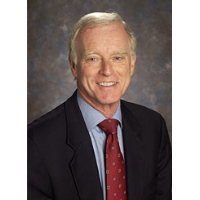COLIN PLANS FOR THE FUTURE

Planning officer Colin Adams is retiring after a career at Lancaster University spanning 40 years.
Colin came to Lancaster in 1964 as an assistant lecturer in biology when the university first opened its doors to students. “I was attracted to Lancaster because it was a chance to develop from scratch more broadly-based degree subjects to students,” he said.
“There was a big debate at the time about whether students should focus entirely on one subject - Lancaster was leading the way in offering the opportunity to try non-school subjects at university level. The first vice-chancellor, Charles Carter, was a visionary who conceived and developed the notion of a comprehensive university of the Northwest, engaging with schools and colleges throughout the region to widen access and participation – 40 years ahead of today’s similar preoccupations.”
After 18 years as a lecturer in the Biological Sciences Department, senior tutor of Bowland College and Principal of Fylde College, Colin moved into central management in 1982 as Secretary for Colleges and Welfare Services. He set up the Planning Office in 1986 since when he has been involved in many areas of university management including strategic planning, funding initiatives, the Academic Planning Committee and the Vice-Chancellor’s Advisory Group.
Colin attributes the success and diversity of his career largely to luck and being in the right place at the right time. “It was my wife who spotted the advertisement for the job by chance in the first place. And in planning I was helped by having experience in so many different roles at the university,” he said. “This was helpful in being able to recognise interactions and think across the whole picture.”
He has many memories of his time at Lancaster University but four projects stand out for him. “I was part of a campaign in the first year to bring sports facilities onto campus which resulted in the building of the sports centre and swimming pool. We opened them up to public use – it was a novel Lancaster idea at the time to loan-finance the developments and fund them by charging the public for the facilities, since followed by most universities.”
Colin was also involved in the conception and development of the Lancaster House Hotel and its training suite, as well as a novel scheme to fund a new residence development to support the Graduate College. “The scheme was a precursor to the public private partnership idea – and again a first for Lancaster.” He was also involved with the early funding and development of the Lancaster Environment Centre and Infolab21.
He looks back fondly on his time at Lancaster. “It has been a very friendly place to work - everyone’s office door is always open and you can communicate easily. We have come along way in the last 40 years – even when times got tough we came through it and out the other side. It’s a pretty resilient place, where you always owe something to someone else – it’s all about teamwork.”
Colin, 65, who has three grown-up children and five grandchildren, has a “tingle of anticipation” about his retirement – he’s planning to take a two-month break before returning to Lancaster to mull over future projects. “I have got some things in mind,” he said. “A couple of months on holiday and then it’s decision time on getting active!”
And he’s optimistic about the university’s next 40 years. “It’s going to be very interesting – there’s an awful lot of work to do in the next three or four years but I’d be very surprised if the university did not continue to be at the top of league tables for research and teaching quality – the university will keep on innovating.”